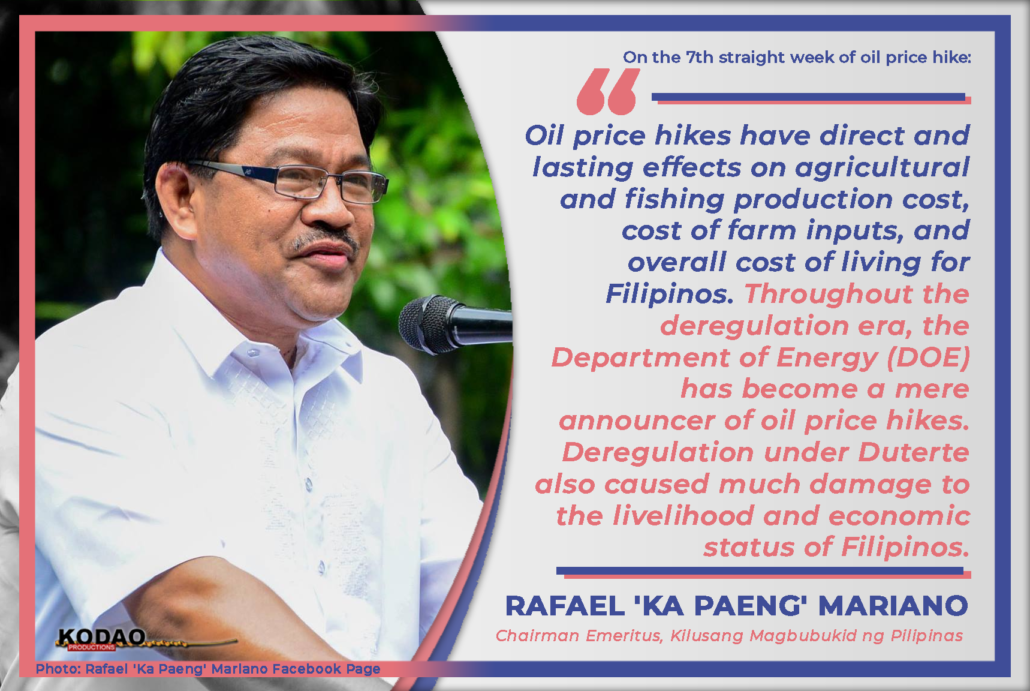Research group IBON said that government’s continued implementation of the Tax Reform for Acceleration and Inclusion (TRAIN) means that TRAIN’s taxes will keep raising prices next year and make inflation higher than it should be.
The group said that lifting the fuel excise tax suspension shows the Duterte administration’s insincerity and insensitivity in addressing the inflationary impact of the tax reform program, particularly on poor Filipino households.
The administration’s interagency Development Budget Coordination Committee (DBCC) recently announced its plan to recommend that the second tranche of fuel excise tax be implemented, backpedaling on its previous suspension proposal.
The DBCC cited the lowering of Dubai crude oil prices and consideration of possible foregone revenues as reasons for its latest recommendation.
IBON however said that not going through with the suspension means new inflationary pressure next year from the second round of oil excise taxes in January 2019 on top of the now built-in additional prices from the first round in January 2018.
The liquid petroleum gas (LPG) excise tax of Php1.00 per kilogram (kg) in 2018 increases to Php2.00/kg in 2019, and Php3.00/kg in 2020. Diesel excise tax of Php2.50/liter in 2018 increases to Php4.50/liter in 2019, and Php6.00/liter in 2020.
Kerosene excise tax of Php3.00/liter in 2018 increases to Php4.00/liter in 2019 and Php5.00/liter in 2020.
The gasoline excise tax meanwhile is set to increase from Php7.00/liter in 2018 to Php9.00/liter in 2019 and Php10.00/liter in 2020.
IBON said that another fuel excise tax hike further increases costs of production. This will create a domino effect that will sustain the high prices of goods and services that many Filipinos, especially the poor, suffered this past year.
IBON estimates that the poorest 60 million Filipinos have already endured real income losses of anywhere between Php2,500 to Php6,800 due to worsening inflation since the onset of 2018.
The group added that it is premature to think that oil prices are going to stay low or that the peso will not continue to depreciate.
Oil prices remain volatile and could still increase next year with US sanctions on Iran gaining traction, possible Organization of Petroleum Exporting Countries (OPEC) production cuts, and untoward geopolitical events.
IBON insisted that the administration can do much to moderate inflation by suspending the inflationary taxes of TRAIN package 1.
IBON said that government should stop imposing higher consumption taxes such as the fuel excise which burdens the majority of poor Filipinos who can ill afford this amid low wages and growing joblessness.
Instead, the government should improve revenue collection by cracking down on tax evaders and corruption in the Bureau of Internal Revenue (BIR) and Bureau of Customs (BOC).
It should also build a tax system that raises revenues more from higher income, wealth and property taxes on the rich.#

